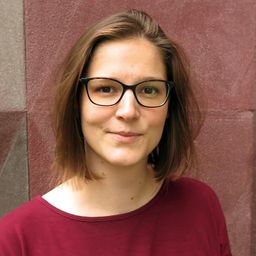Managing the Historic Urban Landscape of Bavaria in respect to the "participatory turn"
Mon statut pour la session
In regard to the authorized heritage discourse, institutions in the field of heritage conservation are nationally legitimized agents that form the epistemological framework for heritage interpretation. They value and sustain specific aspects of cultural heritage and thus represent their own heritage community that needs to (re‐)produce its importance by gaining societal support. Although they are legally empowered, these institutions often have a limited impact themselves because of severe budget cuts, little professional staff as well as having the lingering reputation to be estranged from the public interest.
This paper discusses the present change in the self‐conception of the Bavarian State Agency for the preservation of monuments– veering away from its concerns for the preservation of the materiality of listed objects towards a more inclusive understanding of urbanistic heritage and its role in urban development as well as realizing the need to foster local heritage stewardship and local heritage communities.
To close the gap between safeguarding and development, between expert and local view on heritage management as well as gaining local support, new strategies had to be developed to approximate municipals and their historic urban landscape in an open discourse that enables direct responsibility for urban development. To do that the agency recently developed the "Municipal Heritage Concept", a community‐led strategy and informal planning tool that helps to integrate historical urbanistic heritage in urban development and stresses the significance of community involvement. This tool is in its first phase of application and consolidation. 16 pilot projects are currently administered and professionally as well as financially supported by the agency. Some of these are case studies for my scientific research, accompanying the state agency in the enhancement of this planning tool, within the framework of the “participatory turn”, trying to approximate critical discourses and application‐oriented, pragmatic approaches towards a civic urbanistic heritage management.
One could ask if the agency‘s objections are the legitimization and actualization of their own professional stance. While supranational agencies ascribe to cultural heritage an essential importance for e.g. social cohesion, inclusion, democratization and community place attachment (this is especially apparent within the EU), the legal and institutional framework within which these contemporary notions have to be operationalized in on a national and local level are heavily rooted in the understandings of safeguarding heritage values coined in the mid‐seventies. Does this tool represent a shifting of responsibilities from the state agency to the municipalities themselves? Is it a given necessity to develop methods to foster and capacitate community involvement in safeguarding and claiming urban heritage within a local context? Does such a tool try to create heritage communities or does it try to support them? Which expectations do various stakeholders of the civic population associate with this tool? How and for which reasons do they employ it? Is it a method of civic empowerment within heritage conservation or a "festivalization" of changing power relationships through a shifting within the debate conducted by a narrowly defined circle of stakeholders?
